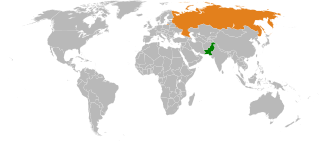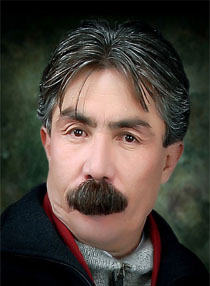
Libya, officially the State of Libya, is a country in the Maghreb region of North Africa. It borders the Mediterranean Sea to the north, Egypt to the east, Sudan to the southeast, Chad to the south, Niger to the southwest, Algeria to the west, and Tunisia to the northwest, as well as maritime borders with Greece, Italy and Malta to the north. Libya comprises three historical regions: Tripolitania, Fezzan, and Cyrenaica. With an area of almost 1.8 million km2 (700,000 sq mi), it is the fourth-largest country in Africa and the Arab world, and the 16th-largest in the world. Libya claims 32,000 square kilometres of southeastern Algeria, south of the Libyan town of Ghat. The country's official religion is Islam, with 96.6% of the Libyan population being Sunni Muslims. The official language of Libya is Arabic, with vernacular Libyan Arabic being spoken most widely. The majority of Libya's population is Arab. The largest city and capital, Tripoli, is located in northwestern Libya and contains over a million of Libya's seven million people.

Asif Ali Zardari is a Pakistani politician serving as the 14th president of Pakistan since 10 March 2024, having held the same office from 2008 to 2013. He is the president of Pakistan People's Party Parliamentarians and was the co-chairperson of Pakistan People's Party from December 2007 until December 2015.

Murtaza Bhutto was a Pakistani politician and leader of al-Zulfiqar, a Pakistani left-wing militant organization. The son of Zulfikar Ali Bhutto, the former Prime Minister of Pakistan, he earned a bachelor's degree from Harvard University and a master's degree from the University of Oxford. Murtaza founded al-Zulfiqar after his father was overthrown and executed in 1979 by the military regime of General Zia-ul-Haq. In 1981, he claimed responsibility for the murder of conservative politician Chaudhry Zahoor Elahi, and the hijacking of a Pakistan International Airlines airplane from Karachi, during which a hostage was killed. In exile in Afghanistan, Murtaza was sentenced to death in absentia by a military tribunal.

Pakistan and the United States established relations on 15 August 1947, a day after the independence of Pakistan, when the United States became one of the first nations to recognize the country.

Yusuf Raza Gilani is a Pakistani politician who served as the 16th Prime Minister of Pakistan from 2008 to 2012. He is currently the Chairman of the Senate of Pakistan since 9 April 2024. Gilani was re-elected on 14 March 2024 after receiving 204 votes and currently is a Senator of the Senate of Pakistan.

Ali Abdussalam Treki was a Libyan diplomat in Muammar Gaddafi's regime. Treki served as one of Libya's top diplomats from the 1970s till the 2011 Libyan Civil War. He was Minister of Foreign Affairs from 1976 to 1982 and again from 1984 to 1986, and was later the permanent representative to the United Nations on several occasions. He was the president of the United Nations General Assembly from September 2009 to September 2010.

Bilawal Bhutto Zardari is a Pakistani politician who served as the 37th Minister of Foreign Affairs, in office from 27 April 2022 to 10 August 2023. He became the chairman of Pakistan People's Party in 2007 following his mother's assassination. Bilawal belongs to the Bhutto family, a prominent political family of Pakistan and is the son of former Prime Minister Benazir Bhutto and President Asif Ali Zardari, and the grandson of former President Zulfikar Ali Bhutto. Bilawal was a member of the National Assembly of Pakistan from 13 August 2018 till 10 August 2023. He was re-elected as a Member of the National Assembly of Pakistan in the 2024 Pakistani general election from newly formed constituency NA-194 Larkana-I, taking oath in February 2024.

Libya–United States relations are the bilateral relations between the State of Libya and the United States of America. Relations are today cordial and cooperative, with particularly strong security cooperation only after the 2012 attack on the US liaison office or mission in Benghazi. Furthermore, a Gallup poll conducted in March and April 2012 found that Libyans had "among the highest approval" of US leadership in the entire Middle East and North Africa region.

Raja Pervaiz Ashraf is a Punjabi Pakistani politician, businessman and agriculturist who served as the 19th Prime Minister of Pakistan from June 2012 to March 2013 and as the Speaker of the National Assembly from April 2022 to March 2024. Ashraf was a member of the National Assembly of Pakistan from NA-58 (Rawalpindi-II). He has also served as the Senior Vice President of the Pakistan Democratic Movement (PDM), an alliance of political parties opposed to Imran Khan's PTI party.

Bangladesh and Pakistan are both South Asian Muslim-majority countries. Following the end of British rule in India, the two countries formed a single state for 24 years. The Bangladesh Liberation War in 1971 resulted in the secession of East Pakistan as the People's Republic of Bangladesh. Pakistan recognized Bangladesh in 1974. Today, bilateral relations between Bangladesh and Pakistan are considered to be cordial.

The Soviet Union and Pakistan first established the diplomatic and bilateral relations on 1 May 1948.

The Shri Swami Narayan Mandir, Karachi is a Hindu temple that is the only Swami Narayan temple in Pakistan. The temple is notable for its size and frontage, over 32,306 square yards (27,012 m2) on the M. A. Jinnah Road in Karachi city. The temple celebrated its anniversary of 216 years in April 2004. There is a sacred cowshed within the premises of this temple. The temple is located at the centre of a Hindu neighbourhood in Karachi. The building that housed a dharmshala for visiting devotees has now been converted to the office of the City District Government.

Pakistan–Sri Lanka relations refer to bilateral relations between Pakistan and Sri Lanka. Both countries are located in South Asia. The earliest proper diplomatic and trade contacts between Pakistan and Sri Lanka date back as early as 1948. In 2013, the then prime minister Nawaz Sharif said that there were strong bonds of friendship between the two countries.

The Libya–Pakistan relations are the international and bilateral relations between Libya and Pakistan. The relations remain friendly and bonded throughout its history as both countries share similar religious identities, and cultural links, particularly their Islamic heritage. The bilateral relations were established in the 1950s when King Idris agreed to provide financial aid to the then-impoverished Pakistan.

Hussain Ali Yousafi was an ethnic Hazara politician in Balochistan, Pakistan. Yousafi was chairman of the Hazara Democratic Party (HDP) and a member of the Quetta city council. He was assassinated by unknown militants in 2009.

Pakistan–Palestine relations refer to the bilateral relations between the Islamic Republic of Pakistan and the State of Palestine. The Palestinian Authority established an embassy in Islamabad on 31 January 2017. Pakistan remains a staunch supporter of the proposal for the continuation of the Palestinian state, and in line with its pro-Palestinian approach, Pakistan does not recognize the State of Israel. However, former President Pervez Musharraf stated that Pakistan will recognize Israel if the latter withdraws its forces from some of the occupied territories and allows the remaining Palestinian land to continue to exist, within the Green Line that served as the international border between the occupation force, Israel, and the Palestine from the First Arab–Israeli War of 1948 to the Third Arab–Israeli War of 1967. Pakistan frequently provides various forms of humanitarian aid to the Palestinian Authority.

Tehreek-e-Nafaz-e-Shariat-e-Mohammadi is an Islamic extremist militant group. The group swore an oath of loyalty to Pakistani Taliban and become the part of it in 2007 aftermath the siege of Lal Masjid. The group's stated objective is to overthrow the Pakistani government and enforce Sharia law in Pakistan.

Myanmar–Pakistan relations refers to the bilateral relationship between Myanmar and Pakistan. Myanmar and Pakistan maintain diplomatic and trade relations.

Athar Mahmood was a career diplomat for the Government of Pakistan. He was posted as Ambassador of Pakistan to Mauritius, Czech Republic and Tunisia as well as serving in the Foreign Office in Islamabad. He earned the title of Ambassador Extraordinary and Plenipotentiary during his career.

On 22 June 2012, the Ashraf government was sworn in as the official government and cabinet of Pakistan from 2012 to 2013 after, On 26 April 2012, The previous Gillani government head, Prime Minister Yousaf Raza Gillani was convicted of being in contempt of court for refusing to bring charges against President Asif Ali Zardari. On 19 June 2012, Gillani was retroactively ruled ineligible to hold the office by the Supreme Court. Raja Pervaiz Ashraf was then selected as the ruling Pakistan People’s Party government’s next option. Ashraf’s selection as Prime Minister restored the country's government after several days of turmoil where officially the country was without a government.



















